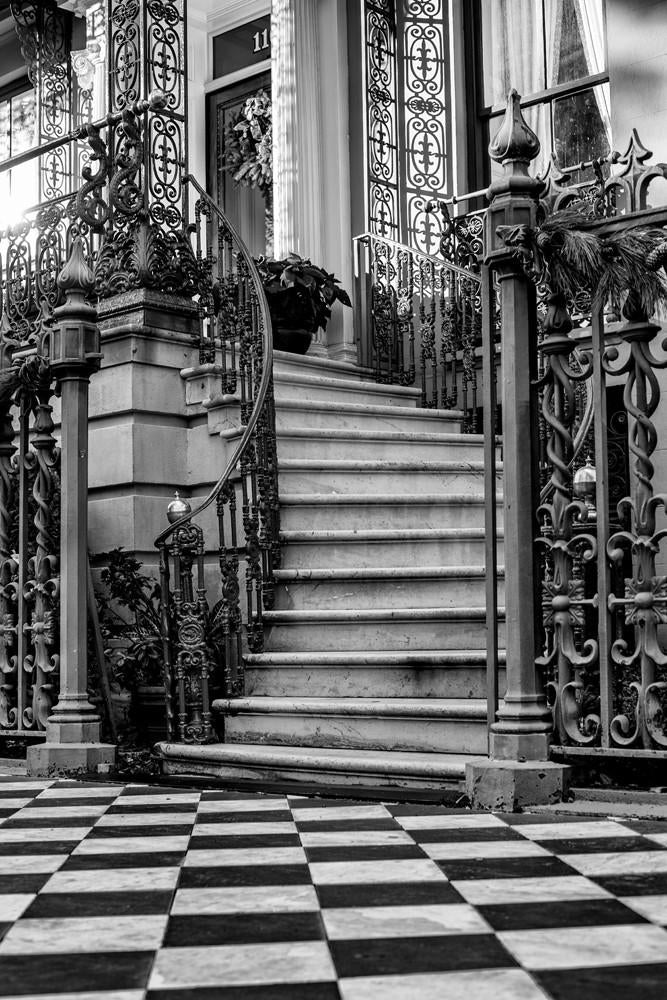
Charleston's historic John Rutledge House is identifiable by its unique checkerboard sidewalk and gorgeous ironwork
The house is named for South Carolina Governor John Rutledge, a signatory of the US Constitution, and second Chief Justice of the US Supreme Court. The house was built at 116 Broad Street in Charleston in 1763, originally with two-stories. The third story was added in 1853 by Thomas Gadsden.
The elaborate, decorative ironwork shown in the photograph extends to a second floor balcony and across the windows of the house, and is believed to have been created by Prussian immigrant Christopher Werner in the 1800s. Werner was known for high-quality work and was of the most influential blacksmiths in Charleston. There's a brilliant, detailed scholarly account of Werner and the history of Charleston ironwork here.
The house became a law office in the 20th century, and is now a beautifully restored inn.
This photograph is a study in leading lines, with the black and white tiles leading the eye to the curved, upward motion of the steps and railings.
Pin it!
Add this photograph to your Pinterest boards.
Further reading
The Early Ironwork of Charleston, by Alston Deas (1941) is one of the earliest and most influential illustrated books on the history of Charleston ironwork.
Sources
Wikipedia: Christopher Werner, John Rutledge House



Leave a comment